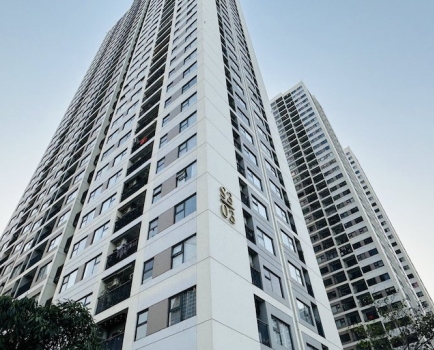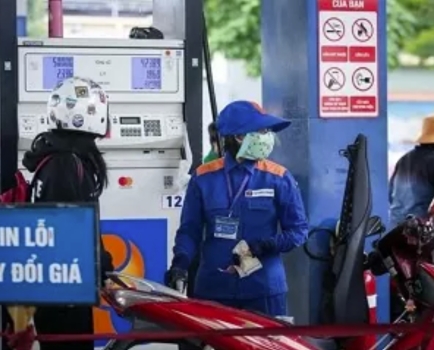Recommendations on the execution of the arbitral award, according to the provisions of Article 67 of the Law on Commercial Arbitration 2010, "the arbitration award shall be enforced in accordance with provisions of law on enforcement of civil judgments."
Fri, 24 Nov 2017 09:50:00 | Print | Email Share:
Name of recommendations: Recommendations on the execution of the arbitral award, according to the provisions of Article 67 of the Law on Commercial Arbitration 2010, "the arbitration award shall be enforced in accordance with provisions of law on enforcement of civil judgments."
Status: Has not been responded
Recommended by units: The Vietnam International Arbitration Center
Official letter: No 1680/PTM - VP, dated: 2017-07-14
Recommended contents:
Law on enforcement of civil judgments 2008, was amended in 2014 [1], has provided the submission and procedures for the execution of the arbitral award as follows: "the Litigant himself or authorizes another person to execute the judgment by the form of direct application or oral presentation or postal application. The applicant shall submit the judgment, decision and other relevant documents. " The above regulations do not clearly specify the "other relevant documents" which documents are included ? Guiding documents on the Law on enforcement of Civil Judgments (Decree 62/2015 / NĐ-CP) also does not provide guidance on this content. This makes the actual implementation of the enforcement of arbitration award encountered some difficulties and inadequacies as follows:
- The enforcement agency has requested the litigant to provide a written confirmation from the court that the court is currently processing and resolving the request application for Cancellation of the Arbitration Award ("Certification of the Court "). While the Court does not have any processess or procedures to issue this Certificate, the granting of the Certificate is entirely dependent on the practice of each Court. Therefore, the judgment creditor must provide a " Certification of the Court " this is the reason that causes the situation is inadequate:
+ Enforcement of the arbitration award is a natural consequence of enforcing the lawful interests of the judgment creditor but it is depended on whether the court issues a certificate, thereby it seriously make belittling this definitively right of the judgment creditor;
+ The procedure for obtaining the Court's certification is an independently administrative procedure, which must be completed before submitting the file to the enforcement agency, the process of requesting enforcement of the arbitral award therefore is risen double. It has a significant effect on the legal interests of the judgment creditor;
+ Procedures for applying for certification of the Court have no unified process leading to difficulties for the court (when the court has no bases to implement) and more difficult for the judgment creditor (because the procedure is not regulated in the law, it is impossible to predict the time, conditions and ability to be granted the certification).
- Logically, the enforcement agency has evidences of enforceable arbitral award (without being suspended by the Court's consideration for cancellation of the award) is reasonable. To avoid the situation that after the judgment is enforced, the court may again revoke a part or whole of the award.
However, the problem is that, which subject must provide this evidence. There are 03 subjects possible to provide evidences for this matter: the judgment creditor, the judgment debtor and the court (where the request for cancellation is made, if any). The choice of the judgment creditor (ie, the "requesting party for enforcement of judgment ") is inappropriate and causes a number of inadequacies as stated above due to:
+ In principle, the judgment creditor is the natural right holder (according to the arbitral award), if the judgment debtor who does not want to execute shall have to prove the right of not yet executing. (because of his requesting for the cancellation of the arbitration award). The transfer of responsibility from "the judgment debtor" to "the judgment creditor " is very unreasonable;
+ In fact, information of the Court that is handling, resolving the request for cancellation of the arbitral award or not, the requesting party will be difficult to know. While the judgment debtor has to enforce the arbitral award (the subject may send application for a Request for cancellation of the Court) and the competent Court may consider dissolving the arbitration award that is easily to provide information. Therefore, it will be more appropriate to get the information from the the judgment debtor of the arbitral decision or the court will be more reasonable due to there are no additional procedures to facilitate the enforcement of the arbitral award. Between the court and the judgment debtor, it is more convenient to provide a proof of cancellation from the judgment debtor (By submitting the Request and receiving it, the Court will issue a receipt to the requesting party), while the Court will issue a confirmation / information to the enforcement agency will take an unnecessary step between these two agencies.
From the above analysis, it is unreasonable to request the judgment creditor (the litigant requests the execution of the judgment) to have a "certification of the court " to be allowed the enforcement of the arbitral award is unreasonable. It is against the guiding spirit of the Government to "shorten time, improve the efficiency of enforcement work" as reflected in Resolution 19-2017 / NQ-CP. Therefore, it is proposed that the relevant agencies (the Ministry of Justice and the Law Enforcement Agency) amending documents on guiding the Law on Enforcement of Civil Judgment (Decree 62/2015 / ND-CP guiding the implementation of the Law on Enforcement of Civil Judgment) that has provided the procedures for enforcement of the judgment in cases where the litigant requests it in the direction of:
1- Does not force the requesting party (litigant) must provide evidences and confirm whether the Court is handling or resolving the request to cancel the arbitration award;
2- Enforcement Agency after receiving the Request must notify for the judgment debtor the t on therequest application and give the judgment debtor a certain period of time to present evidences that verifiying the award in the relevant jurisdiction has not yet taken an effect (due to the expiry of the time limit for complaints and cancellations due to the papers for handling of the written request for destruction by the court). Upon the expiry of this time limit, if the enforced party can not provide evidence of the right to postpone the execution of the judgment in his / her own account, the judgment-enforcement agency shall proceed with the procedures for judgment execution as usual; In cases where the judgment debtor can present proved documents, the judgment-enforcement agencyshall return the written request to the judgment debtor and clearly stating the reasons.
3- Regarding the provisions on "other relevant documents" of the Law on Enforcement of Civil Judgments 2014, these documents should be clearly guided as these documents are proof ofrelation, the identity of the judgment creditor (to confirm that this is the subject to have a right to request for judgment execution, thereby ensuring the strictness and accuracy of the relevant procedures).
[1] Clause 13, Article 1 of the Law on enforcement of Judgments 2014
Responded by units: The Ministry of Justice
Official letter: No 3063/TCTHADS - NV1, dated: 2017-08-18
Responded contents:
- For recommendations and proposals on enforcement of arbitral awards at civil judgment-enforcement agencies
1.1. Regarding the proof of arbitral awards is not required to cancel
1.2. According to Article 2 of the Law on Eenforcement of Civil Judgments, Awards and Decisions of the Commercial Arbitration shall be one of the judgments and decisions that be carried out by THADS. In addition, Article 66 of the Law on Commercial Arbitration has provided:
“1. If only expiry of the time-limit for carrying out an arbitral award, the award debtor has not voluntarily carried out the award and has not requested that the award be cancelled pursuant to Article 28 to Article 69 of this Law, the award creditor shall have the right to request the competent civil judgment enforcement agency to enforce such award.
2. For arbitration's awards on cases, the creditor has a right to request in writing the competent civil judgment enforcement agency to enforce the award after it is registered under Article 62 of this Law.”
Thus, the creditor is entitled to file a request for enforcement of the arbitral award when it fully meets the following conditions:
• The time limit for voluntary arbitration has expired but the award debtor has not voluntarily carried out;
• Having bases to prove at the time of request for judgment execution, the debtor does not request the cancellation of the arbitral award.
For the arbitral award, the debtor has a right to send application to the THADS for enforcement after the arbitral award is registered at the competent court.
1.3. For the recommendation to amend the Decree 62/2015 / ND-CP
At present, the General Department of THADS - Ministry of Justice is reviewing the implementation of the THADS Law and the guiding documents. On that basis, the General Department will synthesize, study and propose competent agencies to solve problems and inadequacies when arising.
Therefore, for the recommendations of your organization regarding the "other relevant documents" as well as the above proved bases, the General Department will synthesize the process of reviewing the THADS Law and other documents. A guidance to the solution.
---------------------------------------------
Same category News :
Other news :













